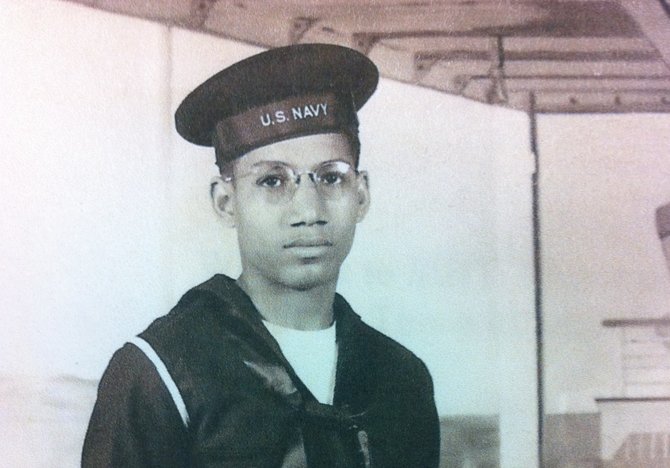Though he lived through war and segregation, Joe LaNier remained hopeful about America through his last days.
Iwo Jima is a small volcanic island in the Pacific Ocean. Its name is seared into the psyche of anyone even remotely familiar with American history in World War II. The island has reached mythical status for the United States and Japan because of the horrors soldiers endured while stationed there, and the near superhuman effort needed to take the island from its Japanese defenders.
In the film "Life, Liberty and Resilience," Joe LaNier's demeanor gives no indication that he participated in the battle. You don't see bitterness, or fear. LaNier is the same way about the larger battle of growing up African American in rural Mississippi.
Steffan Tubbs, the director of "Life, Liberty and Resilience" and author of the book by the same name, is an award-winning journalist who currently hosts a morning radio show in Denver, Colo. In 2006 and again in 2010, he spent time in Iraq as a journalist embedded with U.S. Army's 4th Infantry Division. His experience there led to an interest in America's veterans. He began working with The Greatest Generations Foundation based in Denver. The Foundation is dedicated to honoring the sacrifices of veterans and ensuring their legacies are recorded. One way it does that is to escort WWII veterans back to the battlefields where they fought as young men, taking with them members of the younger generation to ensure their story is told. He heard through this group that a black veteran of Iwo Jima, Joe LaNier, was headed back and decided to interview him for his radio show. "I expected the interview to last five minutes, but it went on for more than an hour," Tubbs says.
He realized what a fascinating story LaNier's entire life was, not just his WWII service. When LaNier's trip to Iwo Jima was canceled after he reached Guam because of the devastating 2011 earthquake and tsunami in Japan, Tubbs promised LaNier that he would get him back to Iwo Jima—and he did. He decided to write a book and then a documentary on LaNier's life and experiences.
LaNier, who passed away in 2013, was a handsome man even well into his 80s, when this documentary was filmed in 2012. In the film, he is always impeccably dressed and usually sporting some kind of hat. Like many men of his age are wont to do, and especially veterans of WWII, he wears a baseball cap with some type of large insignia on the front of the cap that says something about his service. It says "Iwo Jima Survivor."
The documentary has no narrator; the only voice you hear is LaNier's while he tells his story. Tubbs says this is the result of more than 100 hours of interview time. The method works as LaNier is very articulate, with a phenomenal memory, and a kind of empathy that makes the viewer really like him. The scene where he is in an overgrown and completely trashed cemetery near Columbus, Miss., looking for his parents' graves and can't find them, is heartbreakingly real and makes one want to grab the neighbor's bush hog and help him find them.
His descriptions of the violent racism in Mississippi when he was growing up and the continued racism in the Navy during the 1940s is told in a voice not looking for pity, not full of the bitterness, but rather as one relating some strange facts.
The key to this documentary, and what makes it well worth seeing, is LaNier himself and his outlook on life at the end of his days. He is unfailingly enthusiastic about America and how far it has come since his days growing up in Mississippi, and he states how proud he is of his country for realizing that things had to change.
"There's no such thing as a perfect Union," he says in the film.
"That's why we always say we are trying to make it a more perfect Union, because each generation is going to have something they need to fix that the previous generation didn't do. ... We've moved forward in a positive sense. Sometimes it's slow, but it happens. That's why I'm proud to be an American."
"Life, Liberty and Resilience" screens at 1:10 p.m. April 5 on Screen B.



Comments
Use the comment form below to begin a discussion about this content.
comments powered by Disqus